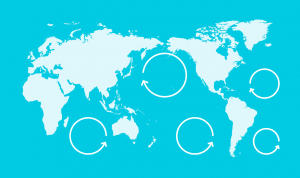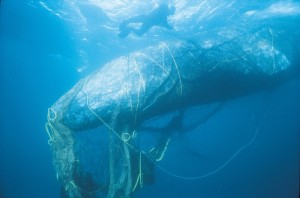Plastic pollution : a national and international issue

May 27th, 2016
Look around, is there plastic near you? Of course there is. Plastic is everywhere. The cheap practical material is used for a large number of goods, it revolutionised our lives but what about the “after”? The pieces left behind, on the streets and most importantly in our oceans?
Ireland was the first country to develop a policy about plastic bags, in 2002. During the first year, the levy established allowed a reduction of 90% of plastic bags and inspired other countries to implement the same kind of policies. However, plastic pollution is still a problem. In 2015, Coastwatch recorded 14,000 discarded plastic bottles and more than 5,000 metal drinks cans on the 300 km coasts surveyed. Both items appeared in 83 per cent for plastic bottles and 68 per cent for metal cans of survey areas, while plastic bags were found in half of the area.
All of this plastic becomes an even bigger problem when it is lost in oceans.
Because of ocean currents and gyres, all the plastics concentrate on large areas, constituting what are called plastic continents. The Ellen McArthur foundation considers that in 2025 there will be 1 ton of plastic for 3 tons of fish in the oceans and in 2050 plastic will weight more than fish. For the moment 6,5 billions kilos of plastics are lost in the oceans every year.
The impact of this waste is enormous because it is affecting marine biodiversity, as much huge mammals and micro organism and quality water.
Plankton is the most important source of life of the ocean. It weights more than 95% of the oceans biomass and creates as much oxygen as all the terrestrial vegetation! It can be found under various form : plant, animal or bacteria. In “Plankton, Wonders of the drifting world”, Christian Sardet, biologist and research supervisor in the French National Centre for Scientific Research (CNRS), explains its importance for the bio geological balance of the planet. A recent video showed that planktons actually ingest plastic too, an important problem because they support the marine food web, and so those plastic residues will be found in other fishes. Plankton is today in great danger because of human activity: plastic rejected in the ocean but also pesticide and global warming, from 1950 to 2008 phytoplankton have drop of 40%.
Bigger animals suffer from ocean pollution as well. Thousands of birds and marine mammals die every year because of plastic, over the last months, a large number of whales has been found dead, specially in the North Sea region, reported The Guardian. All of them had huge amount of plastic in their stomach, due to human activity and the little care we have for its recycling. Scientists that practised post mortem exams on the animals found “A 13-metre-long fishing net” and “a 70cm piece of plastic from a car”, in their stomach. Plastic is often confused for jellyfish by animals that end up swallowing them and eventually dying from it. 86% of turtles and 94% of north sea birds are concerned by this same problem.
Did you know that?
1 tonne of plastic disposed of correctly = 1,5 tonnes of CO2 released into the atmosphere SAVED!
Ireland produce around 200,000 tonnes of plastic waste a year which represents 50,000 Olympic swimming pools of plastic. And only 36% are recycled.
[x_author title=”About the Author”]










